
Background: Pre-Vietnam
Born on March 31st, 1943 in Langley, Virginia, John Furgess was already bound for a life in the service. Furgess’ father was a World War II Veteran in the Army Air Core stationed in Pearl Harbor, but was ordered out 6 months before the attack to Langley Field in Virginia. In 1945, his father had received an honorable discharge and his family moved to Nashville where he grew up. “Very happy to be a Nashvillian!” Furgess stated. He graduated from Father Ryan High School in 1961, and was still undecided on where he was going to go to college. “We were going to Ryan one morning. We were seniors. My dad was driving I was in the passenger seat, two classmates in the back seat and they were bragging about going to UT Knoxville. And I said well, I am undecided to that effect. They had heard me say that and he was driving. He said John is going to MTSC, Middle Tennessee State College, and take ROTC. And I looked at him and said, RO What?” Furgess told me. MTSC became MTSU, where he graduated from and said that the ROTC was his start to his military career.
Vietnam: Preparing for Battle
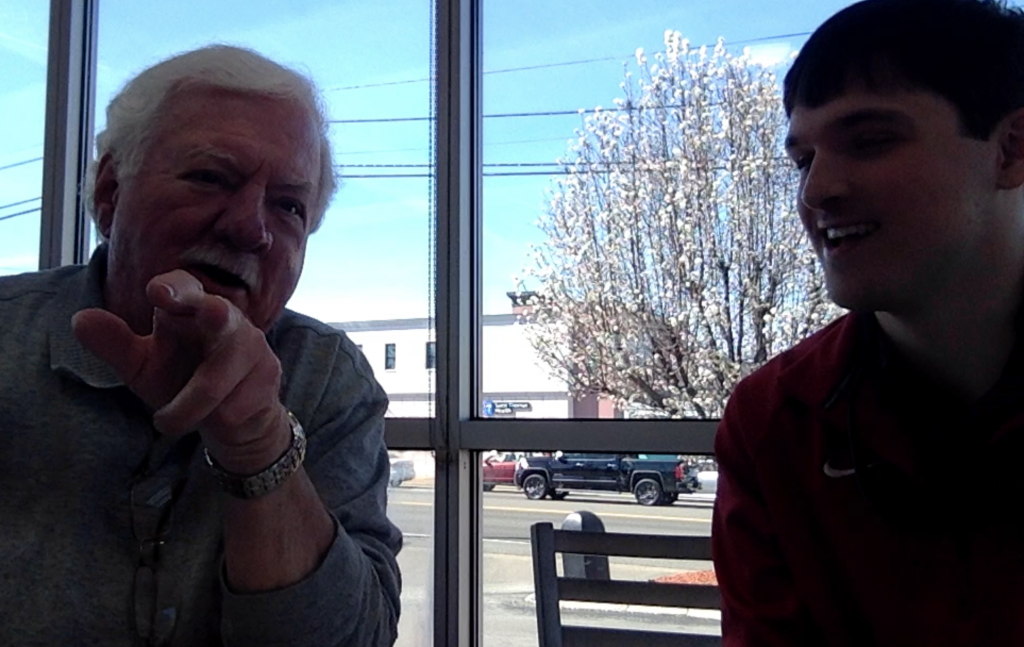
Furgess volunteered to serve for Vietnam straight after graduation from MTSU. He was commissioned to be a second lieutenant upon graduation. He listed Infantry as his first choice and Military Intelligence as his second following his graduation from the ROTC. “And low and behold my orders came as Military Intelligence for the US Army Security Agency. I remember getting those orders and going to the Sergeant Major and going “What in the world is this?” He said, “Oh John it has to do with radios, you’ll like that”” Furgess said laughing. He was with the US Army Security Agency from 1965 until 1970. Volunteering for Vietnam in 1966, Furgess received his orders to Fort Hood, Texas, where he would train up and be a Bachelor Officer. He and his men in 198th Light Infantry Brigade, 6,000 men, departed for Vietnam in October of 1967. The journey took three weeks across the Pacific Ocean. Furgess recalled, “I will never forget that three weeks. We had about eight hours leave in Manilla. The Navy Captain comes on and says “Eight hours liberty! Everybody leave the ship!” I said “What?! You’re gonna let these people off this ship bound for Vietnam?” I was a new second lieutenant by then. He said “Yes, everybody eight hours liberty.” Sam, we had not one AWOL and I am so proud of that group of soldiers.” In total, the United States had around 420,000 soldiers who deserted. (Huff Post) Despite the lack of desire from many to fight in battle, not one of the 6,000 men with Furgess decided to desert when they had the chance. He also recalled that only a few of the members in his unit were actually selected in the draft. “But again most of the people in my unit Sam were college graduates. I couldn’t be more selective of a group than the group I worked with. Outstanding individuals. So that was my experience. Some were drafted yes, but many volunteered and they wound up in the Army Security Agency after going through basic training, and advanced individual training” he said.
Arrival in Vietnam and First Impressions
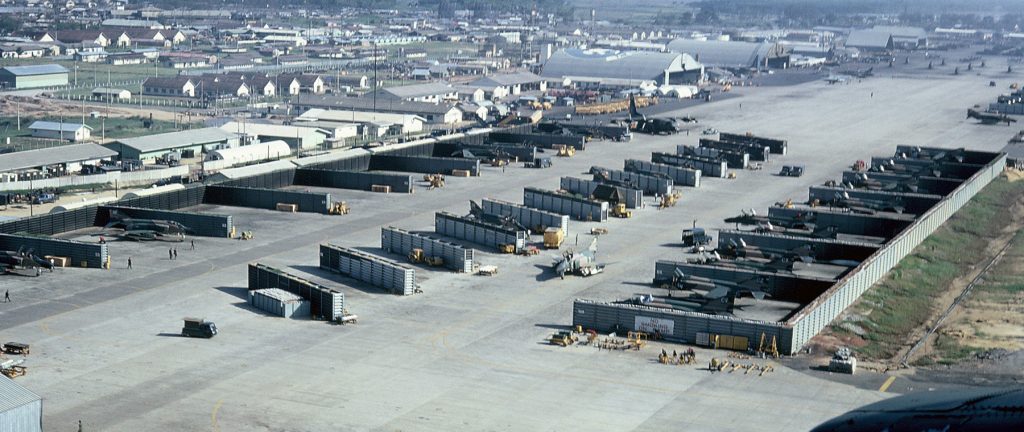
After a long three week journey, John Furgess and his men arrived at Da Nang. He recalled his men then offloading onto small LST’s in the middle of a terrible storm to head to Chu Lai, which was five hours south of Da Nang. “Chu Lai, large base. The Army was there, the Navy was there, the Air Force was there, the Marines were there. Pulled onto the sand ramp there at Chu Lai and I said to my 1st Sgt, “We’re going to war” and he said “Let’s go.” Big ramp dropped on that LST and I pictured going to shore like John Wayne, but it was very administrative” he recalls. Instead of jumping straight into battle, the Navy where convoying he and his men to head to there basecamp. He also remembered that even though all of these different military branches were stationed there, most of the signs said certain parts of the base were “FOR MARINES ONLY.” He looked at his fellow soldiers and wondered what he had gotten himself into. “When I was at Chu Lai from October of ’67 to October of ’68, there were 500,000 Americans in Vietnam, half a million.” said Furgess.
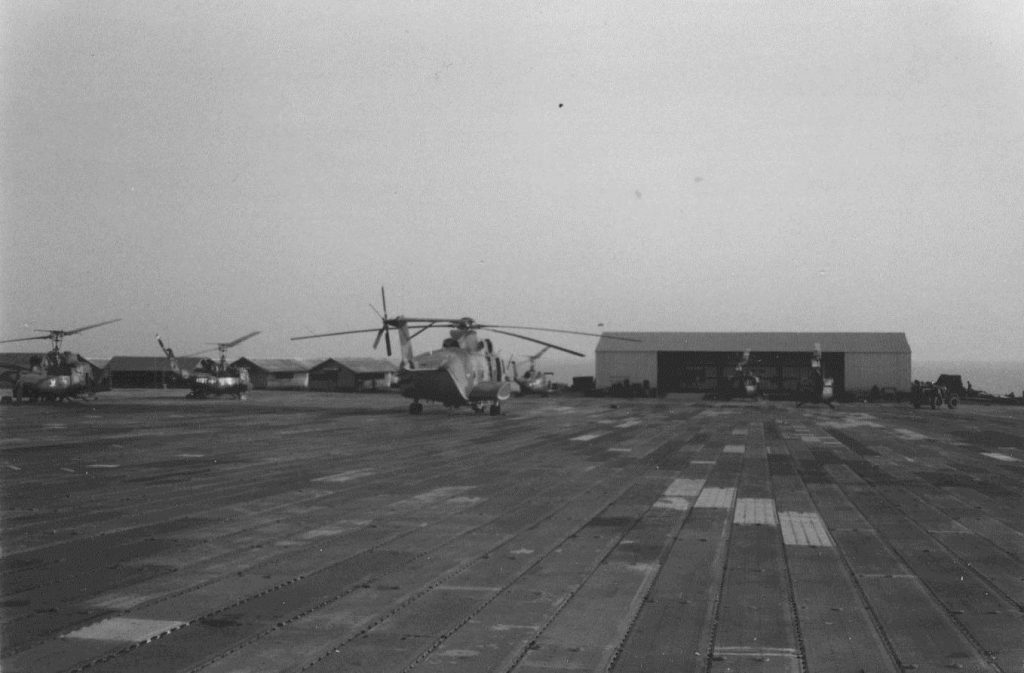
Furgess was only in Vietnam from October of 1967 to October of 1968, but unlike some, Furgess said he would not trade the experience for anything. He only lost one soldier in his one year in Vietnam. “SGT Jernigan was my motor sergeant. He came in one morning and said, “Captain Furgess, I feel terrible and I want to go on sick call.” I said, “Sarge go! That’s what they’re there for. You call me when you get back.” About two hours later the doctor called from the division hospital. “Captain Furgess, I’m sorry SGT Jernigan has passed away.” I was shocked and I had said “What?!” He said he had the disease of an old man is the way he put it. That was his third trip to Vietnam. They traced it to Agent Orange from the springs and the jungles” he recalled. Agent Orange was a powerful herbicide that the US Military used to eliminate forrest cover for both the Viet Cong and North Vietnamese Army. (History.Com) Furgess himself is affected by Agent Orange. “I do receive a VA Disability, which they traced to Agent Orange. Prostate Cancer and Heart Disease. I remember filling out a form saying where were you in Vietnam, what were the dates. I remember a lot of jungle spraying which became known as Agent Orange, killing off the foliage so that the aggressor couldn’t hide behind the foliage. That’s what Agent Orange was, killing the foliage. To this very day, people are being affected by their exposure to those chemicals from 50 years ago. Just remarkable that Agent Orange is here and a big medical factor of course” he said. Some 400,000 people were killed in Vietnam and as many as 2 million people suffer from diseases related to Agent Orange.
We’ve Been Nuked! (Not Really)
I asked Furgess about some memorable stories from his time in battle. He talked about his story of the Tet Offensive on January 31st 1968. The Tet Offensive was an attack by the North Vietnamese Army and the Viet Cong against targets in South Vietnam on the lunar new year holiday known as Tet. (Office of the Historian) Furgess and his fellow sergeants were up at the crack of dawn when he began to document the story. “The base was being attacked and we knew that, it’s a large base. We were a good distance away from the base ammunition dump as we called it. All kinds of weapons. I am convinced it was a lucky strike when they hit the dump with rockets. And it went up like noon in a mushroom cloud and my SGT said, “Oh my god! We’ve been nuked!” And I said surely not, that’s all I could say. It knocked us down, didn’t hurt us. Just the concussion from the tremendous blast. Hell, I’ll never forget that experience, I’ve told that a lot” Furgess stated. It was the next day that on February 1st, John Furgess was promoted to captain. The Tet Offensive saw both the United States and South Vietnamese Militaries suffer heavy losses before they were able to fight off the assault and also saw US public support drop for the war. (Office of the Historian)
Another story he told was about a helicopter flight from Chu Lai to Phu Bai combat base, when rockets began to be fired upon their helicopter “We were flying north one night in a helicopter flight. Chu Lai to Fu Bai on the DMZ. And about half way up near De Nang, we became aware that we were getting some rockets fired at our helicopter. And the young officer pilot said, “You people sit there and relax. I can get higher than they can!” He kept getting higher and higher and the tracers kept falling down, but I said, “Yeah, but you kept getting further north too and they’re pretty capable.” But we landed without incident” said Furgess. One of Furgess’ good friends was John Fuqua, who was killed in action on the same day of the Tet Offensive. Furgess remembered that Fuqua’s family was listening to a tape that he had sent back to his family was at home. While they were listening to his tape, a knock came at the door that Fuqua had been killed in action. Furgess went home to be their for the funeral in Nashville. “The funeral director told me it was the largest funeral up to that time in the city” Furgess recalled.”
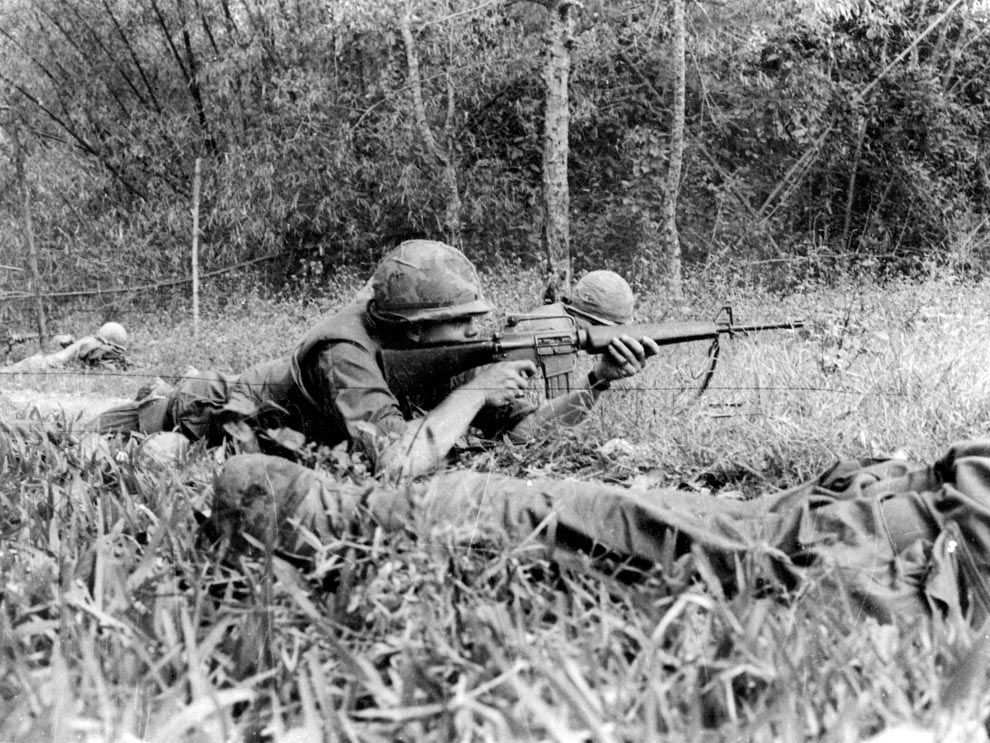
Coming Home And Leaving Active Duty
In a war that was considered very unpopular by most and a lot of negative homecoming’s, John Furgess’ was very calm to say the least. “Well, interesting, because when I got off the airplane in Nashville, I had impressions, I don’t know why but maybe it was normal, but I had impression of a crowd of people being there. Not the case. My mother and father were there and my two sisters. That was my welcome home, my personal family, which was fine” he stated. Furgess never did have people call him names or was spat upon. “We can’t change what history says. Unpopular that I think it lasted too long.” One of the memories he recalled that will stick with him forever was when he left Vietnam. “Then flying out of the country when I was a soldier, flying home, out of Saigon on the airplane. I went over by ship and flew back, and I remember the crowd breaking out singing Up Up and Away, the song popular that was by the Fifth Dimension as we flew away back to Tennessee” he said.
When he left active duty, Furgess still wanted to keep his commission. He went to the Pentagon in Washington DC, where he was hoping to join the US Army Reserves post Vietnam. “Walked into the Pentagon, not to exaggerate, but there was a big Colonel sitting behind a desk reading the Washington Post. Hardly looked up at us, myself and another Captain. “What can I do for you?” I said, “Sir, I am leaving active duty have anything in Nashville TN?” “Don’t have anything.” Hardly looked up.” Furgess said in a deep tone. His friend from South Carolina was a Captain as well could not find anything either so they both took a trip to the National Guard office in the Pentagon. “Walked in, two of us, and there was a grey-haired major sitting behind the desk, reading the Washington Post. Two captains walked in and he threw the paper down and jumped up, “Gentleman can I help you? Welcome! What can I do to help you?” I said, “Sir, I’m going to Nashville, Tennessee to leave active duty. Just thought you may have something there.” “Oh yeah, wait a minute!” Sam, he turned around dialed a number, handed me the phone and said, “Speak to the Chief of Staff, 30th Army Division. Tennessee Army National Guard.” That was my introduction to the National Guard.” he recalled. He spent 23 years with the Army-Guard and retired in 2006, to end a spectacular military career.
VFW Member to National Commander
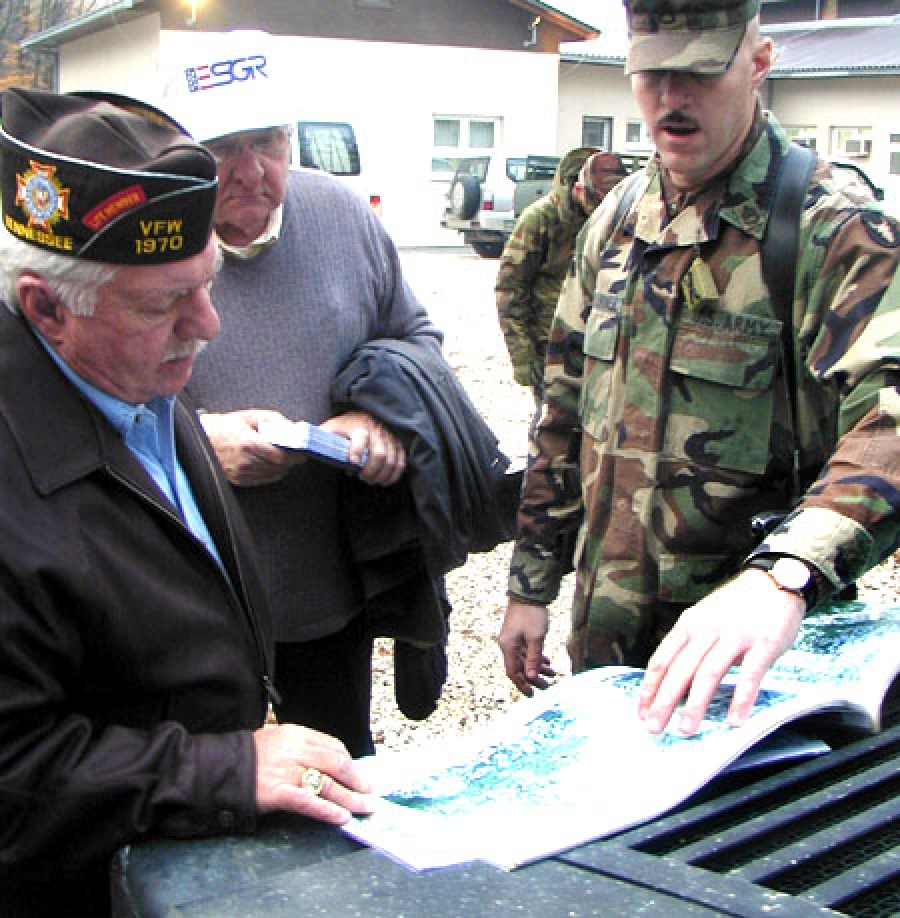
While in Vietnam, Furgess began to have strong ties to the VFW. The West Nashville Post Commander from Post 1970 lived down the street from Furgess’ parents. The VFW, Veterans of Foreign Wars, is a nonprofit veterans service organization comprised of eligible veterans and military service members from the active, guard and reserve forces. (VFW.org) The commander asked for John’s mailing address in Vietnam to send him a care package, which he received on Christmas Eve of 1967. “It was personal things like toiletry items, food things like little cakes and snacks. I was so impressed that they bothered to do that, that I said when I get home, I am going to join this post!” Furgess said. When Furgess got home, one of his friends gave him a call to take him down to Post 1970 and have him sign up. “We walked in the post and there was a young member standing at the door and he said, “Yeah we know Mike’s in but we need your dues.” So, I gave them a check and joined the post that moment and walked on back to the canteen area, where the commander stood, my parent’s neighbor who had sent the care package. He said, “John! Welcome home! I want to sign you up!” I said “Joe, I just signed at the front door.” “What!? I was supposed to sign you up!”” Furgess said chuckling. In 1978, Furgess was the first Vietnam Veteran to be elected post commander for Post 1970 and also the first to be elected district commander. Many of his fellow Post members encouraged Furgess to run to be the state commander and in 1978, he became the first Vietnam Veteran to be elected state commander in Tennessee, which saw him visit over 95 counties.
His biggest honor came in August of 2004. Furgess was elected National Commander of the Veterans of Foreign Wars. He served a 3 year term until 2006. “It’s a three year run through the national chairs, and in those three years, I have visited all 50 states, 25 countries around the world, and the first National Commander to visit our troops in Iraq, which I am very proud of that experience” Furgess said. Not only was he able to visit our troops in Iraq, but he got the opportunity to return to Vietnam on three different trips. I asked him about his initial impressions going back to Vietnam. “Sam, good question. I was blown away, not to exaggerate, but blown away with the friendliness of the people. When I saw the itinerary, the US Embassy is now in Hanoi, I couldn’t believe that, but it’s true that’s where the US Embassy is located today” he said. Everyone in modern day Vietnam welcomed he and his fellow friends with open arms on all three of the visits. He remarked as well on how much the city had changed since war was there. “We landed at the airport in Hanoi. The gentleman with me was the Director of our offices from Washington. He says to the captain, “We want to go to Hanoi Hilton.” That’s what we call the POW camp, the Hanoi Hilton. Where do we go, but to a new beautiful modern Hanoi Hilton Hotel! Not the prison camp we thought we were going to. Beautiful hotel. He said no no no the prison” Furgess told me. The Hanoi Hilton was the name for the North Vietnam Prison where the US POW’s were kept, including John McCain and one of John Furgess’ good friends, whose picture was on the wall of the Hanoi Hilton Museum. “My good friend was there, and we were going down the hall and there was his picture on the wall of the Hanoi Hilton. I could hardly wait to get home and tell him his pictures on the wall at the Hanoi Hilton.” Furgess said. He told me he always asks Veterans if they have been back to Vietnam since. “If they tell me they didn’t lose anything there and don’t want to go back, I don’t argue with them. But I told them if you do go back, it will totally change your impression of Vietnam all these 50 years later.”
John Furgess Today
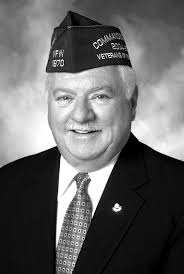
Today, Furgess still currently resides in West Nashville and is active with VFW Post 1970, and also American Legion Post 5. “After World War II, Post 5 had 8,000 members, one of the largest in the nation. They told me you do not run for public office in Nashville if you were not a member of the American Legion Post” he said. For 20 years, he served as the Assistant Commissioner for the Tennessee Department of Veterans Affairs. He married his wife Alma in March of 1971 and is the father of three daughters and has 12 grandchildren. Alma passed away two years ago, and Furgess says she was incredibly supportive of his military involvement. “Alma is deceased, she had a massive heart attack two years ago, but she was very supportive of me, and my military and veteran’s groups. And my three daughters are supportive this very day.”
I asked him what is the one thing he would like to be remembered about the Vietnam War and would he do anything differently. In terms of do anything differently, he said there’s not one thing he would change. ” I was only there one term, 12 months, but I’ll never forget 12 months. Just very honored to be a Veteran and look forward to continuing to promote the military service, which I greatly believe in” he said. When I talked to Furgess, you could see how much he appreciated his time in Vietnam and the experiences he had, considering hearing stories of other Veterans who would never dream of going back to visit Vietnam or wish they had not been pick. In terms of what he wanted to be remembered from the war, he said he would just like for this current generation to cherish the stories of the Vietnam Veterans and that they had served and made it through what history considers to be an unpopular war. “Still a great group of people and you’ll see more and more now, “Thank you for your service! Thank you for your service!” We use to never get that. I went for years with no one saying thank you for your service. Now, almost everywhere I go if I have a shirt or a cap on, somebody’s going to say thank you for your service. Which we greatly appreciate the public recognition like that. It means a lot” Furgess said.
I had been very fortunate to cross paths with Mr. Furgess thanks to my great connections through my high school senior service learning project and meeting him and his fellow post members for a round table interview and hearing phenomenal stories for the day. I personally cannot thank John Furgess enough for his dedication to serving our country and sitting down with me to tell his amazing story. After spending an hour with him and taking this Vietnam History class, I have gained a new respect for our Veterans who served in Vietnam and appreciate them for fighting for our country.
Further Readings
Wirtz, James J. The Tet Offensive: Intelligence Failure in War. Ithaca, NY: Cornell University Press, 1991.
Schuck, Peter H. Agent Orange on Trial: Mass Toxic Disasters in the Courts. N.p.: Belknap Press of Harvard University Press, 1986.
History.Com Editors, ed. "Agent Orange." History.Com. Last modified April 15, 2019.https://www.history.com/topics/vietnam-war/agent-orange-1.
"U.S. Involvement in the Vietnam War: The Tet Offensive, 1968." Office of the Historian. https://history.state.gov/milestones/1961-1968/tet.
"VFW About Us." VFW.org. Last modified 2019. https://www.vfw.org/about-us.
LHistory, ed. "Vietnamese Prison: The Hanoi Hilton." Learning History. Last modified March 29, 2017. https://www.learning-history.com/vietnamese-prison-hanoi-hilton/.
Giraldi, Philip. "Deserters, Traitors and Resisters: A Long Tradition of Those Who Walk Away From War." Huff Post. Last modified September 2, 2014. https://www.huffpost.com/entry/deserters-traitors-and-re_b_5555214.